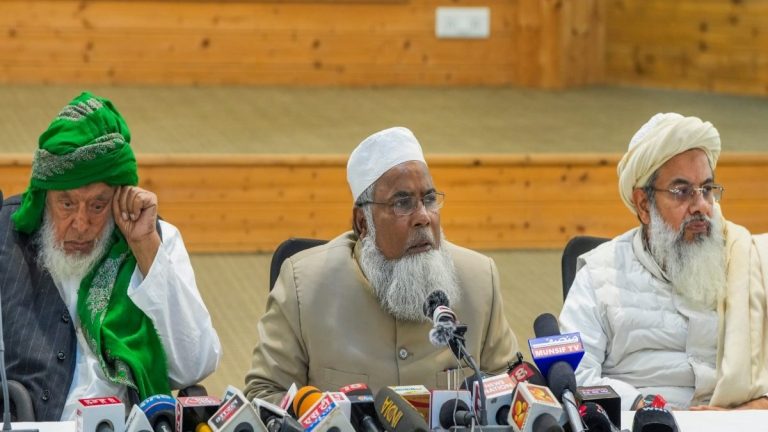Days after Prime Minister Narendra Modi proposed a “secular civil code”, the All India Muslim Personal Law Commission on Saturday underlined the Law Commission's 2018 assertion that a uniform civil code was neither necessary nor desirable and asserted that any attempt to enact a uniform civil code Any attempt will be “unacceptable”.
The All India Muslim Personal Law Board (AIMPLB) said it found the Prime Minister's call for secular civil laws and terming religious personal laws as public laws “highly objectionable”.
AIMPLB said in no uncertain terms that this was “unacceptable” to Muslims as they would never compromise with Muslim personal laws.
AIMPLB spokesperson SQR Ilyas expressed shock at the Prime Minister's remarks on the introduction of a secular civil code.
He called it “a well-thought-out conspiracy that will have serious consequences.”
The committee considers it worth mentioning that Indian Muslims have made it clear many times that their family laws are based on Sharia law and no Muslim can deviate from it at any cost, the statement said.
The Indian Legislature has approved the Sharia Application Act, 1937, and Article 25 of the Indian Constitution provides that the belief, propagation and practice of religion is a fundamental right.
Elias said family laws of other communities are also based on their own religions and ancient traditions, and tampering with these laws is basically a denial of religion and imitation of the West.
He said such absolute power should not be exercised by the country's elected representatives.
Ilyas stated that the Uniform Civil Code mentioned in the Guiding Principles is only a directive and all directives are neither mandatory nor enforceable in court.
Ilyas said these guiding principles cannot replace the fundamental rights enshrined in the constitution.
He reiterated that the Constitution envisaged a federal political structure and a pluralistic society where religious sects and cultural units had the right to practice their religion and preserve their culture.
Ilyas criticized the prime minister's use of the secular civil code instead of the constitutional term “Uniform Civil Code,” claiming it was “misleading.”
He said there would be no space in it to exclude any class, caste or even tribe.
Ilyas questioned the prime minister's intentions, claiming he was only “targeting” Sharia law.
“Based on religious common law, the prime minister not only imitates the West but also insults the majority of religious people in the country. This does not bode well for religious groups,” he said.
Ilyas said the committee also wanted to make it clear that for those who want family life without any religious restrictions, there is already the Special Marriage Act, 1954 and the Indian Succession Act, 1925.
He said any attempt to impose secular codes by changing Sharia and Hindu law would be “condemned and unacceptable”.
Ilyas claimed that the government should stick to the opinion of the Law Commission chairman appointed by the BJP government, who had made it clear in 2018 that a uniform civil code was “neither necessary nor desirable”.
Ilyas advised citizens to remember the sacrifices and achievements of our freedom fighters and the dream of a free, prosperous, fair and peaceful India and not to be polarized by religious hatred and animosity generated in the society.
The committee expressed the hope that peace-loving and justice-loving citizens of the country can fully unite to resist such subversive and anarchic behavior.
In his Independence Day speech, Modi said that the formulation of a “secular civil code” is the current need of the country. He also described the existing set of laws as a “public civil code” and said it was discriminatory.
In his Independence Day speech, Modi said, “A large section of the country believes that the Civil Code is actually a public civil code to some extent, which is also true. It discriminates (among people). The prime minister has said laws that divide the country along racial lines and are a cause of inequality have no place in modern society.
“I would say that a secular civil code in India is the need of the hour. For 75 years, we have been following a common civil code. Now, we have to move towards a secular civil code. Only then will discrimination on the basis of religion come to an end.
(This report has not been edited by News18 staff and is published from United News Agency-PTI)
